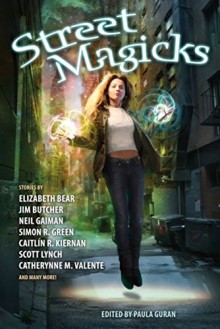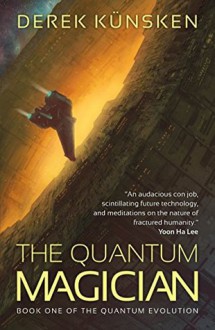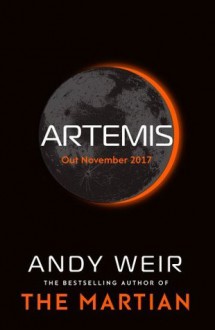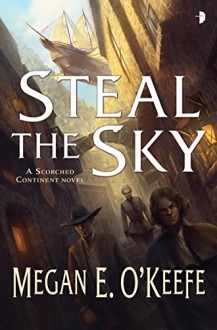
[I received a copy of this book through NetGalley, in exchange for an honest review.]
In the past, I read a couple of other anthologies edited by Paula Guran, and I remember liking them overall, due to the choice of stories: they may not all have been breathtaking, but they also weren abysmal, and as far as anthologies go, I think I do tend to appreciate that a little more than reading excellency pitched against really bad writing.
The stories here deal mostly with magical happenings and encountering in cities--a theme I especially like. Most are modern fantasy, but more traditional fantasy also has its place here.
“Freewheeling” - 2/5
A young woman tries to help a kid whose very special take on life may be madness... or a real touch of magic? And the question is, will mundane life keep interfering until something tragic happens, or will magic happen instead?
Not my favourite. I could see the ending coming almost from the beginning.
“A Year and a Day in Old Theradane” - 4/5
A band of retired thieves find themselves back in their ¨line of duty¨ to perform the theft of their lives: steal a whole street. Humour, magic, blackmail, backstabbing, an urban setting, and a cast of mostly women (and an automaton) whoŕe not afraid to be who they are. Whatś not to like?
“Caligo Lane” - 3/5
Read in another anthology “The Best Science Fiction and Fantasy of the Year, Volume Nine” so I guess the novelty wasn exactly there. Still, it remains a touching story, of a mage who uses maps to bend space and save people trapped in parts of the world where every other means of escape have failed.
“Socks” - 3/5
A Bordertown story. I don´t know that setting, except through another story in another anthology; however, I still think it´s not such a problem, as mood and theme are easy enough to ¨get¨ even without knowing the whole context. Here, Socks, a young girl, is taken in by a family of strays. Soon after, Perdita joins the crew, Perdita whose mysterious mother taught her many a tale...
Interesting, but I found myself wanting to know more about Socks at the end--it was never clear whereas the whole thing about her feet was merely illness, or a symptom of something else. I kept expecting that something else to happen, and... nothing?
“Painted Birds and Shivered Bones” - 3.5/5
A poetic tale of a man cursed to turn into a bird, going through centuries without respite, until a kind of magic apt to break his curse surfaces in the painting of artist Maeve. A bittersweet tale, perhaps a bit too focused at times on the artist-chic cliche? I may be a little jaded with that one at the moment -- it itself, it doesn´t make the story bad, at any rate.
“The Goldfish Pond and Other Stories” - 2/5
Originally read in “Smoke and Mirrors”. This one relates a writer's experience as he flies to Hollywood, where his novel is to be adapted into a movie, only to see said novel stripped to the bone and reworked every time. A tale of being dispossessed on one's soul, maybe, and of having to let go. Or perhaps a tale of former Holywood legends fallen back into the mist of times, unremembered by all but the humblest?
Not my favourite Gaiman story, to be honest. It's a bit... bland compared to some of his other works.
“One-Eyed Jack and the Suicide King” - 2/5
A good beginning, of a struggle between spirits/local gods fighting for their turf. The story was wanting, though, as it feels like it should be expanded into something more. It's a beginning, indeed, and not a full-fledged plot.
“Street Worm” - 4/5
Rather scary when you come to think of it. A teenage girl runs away from a privileged home, for her parents believe her going on slightly crazy and want to send her to a shrink (probably not for all the good reasons either — a family has standards to uphold within the community...). But is this girl just mad, or does she really see things, things of another kind, worms danglings from buildings like a threat lingering above the city? And the man who tells her sheś magic, is he meaning well, or is he just a creep?
I wanted a bit more at the end, to be honest. Like a lot of stories, this one feels like unfinished business in some parts. Still, a good read.
“A Water Matter” - 2/5
The Duke is dead, may he stay dead! Only a mysterious and potentially malevolent shaman wants the power released upon that death, so the Dancing Mistress, a shapeshifter (...I think?) takes it upon herself to prevent this from happening.
More than with the Bordertown stories, I think I was missing something here—the action is set in a world with its own backstory, and I constantly felt it was part of something bigger, something that deserved more. The actual plot didn't impact me as it could have, had things been otherwise.
“Last Call” - 3/5
A Harry Dresden short story. On principle, I tend to like those, because I'm fond of the world and character Butcher developed (they're part of the works I'd quote first if someone asked me for examples of “urban fantasy”). On the other hand, this one is a bit spoilerish if you haven't read at least the first 8-9 books of the series...
“Bridle” - 1/5
A kelpie story, with a dark fantasy approach that had its poetic moments. Still, it didn't grab me much.
“The Last Triangle” - 4,5/5
A junkie finds shelter at an old woman's who happens to realise a dark magic ritual is about to take place. Together, they do everything they can to stop it, as well as the person casting it.
This one had the kind of plot and ending I'd deem as “definite”. You can see it going somewhere, with a beginning, middle and end, and even though the latter is “open” as far as the main character's future is concerned, it nonetheless brings resolution to the “dark spell” plot.
“Working for the God of the Love of Money” - 2/5
Again, an interesting beginning, but the end was very abrupt (in an expected-yet-not-waited-for way).
“Hello, Moto” - 4/5
Three witches with enchanted wigs let themselves be devoured by their magic... or not? For Rain, taking upon herself once again to mix up magic with technology, wants to stop her “sisters” gone on a rampage of take-never-give in Lagos. One may wonder, though, if using precisely what went wrong the first time can right that wrong... or not.
Original and entertaining. I just regret the ending, again too abrupt, with no true resolution per se. “Leaving things to the reader's imagination” can only go so far...
“The Spirit of the Thing: A Nightside Story” - 3/5
A detective doing his job, a shady bar with an even shadier owner, and angry water spirit, the ghost of a murdered young woman, and a twist to try and make things right no matter what.
“A Night in Electric Squidland” - 3/5
Paranormal investigators working on a murder case end up in a night club whose practices may not be what they seem.
I liked the atmosphere (the dark and somewhat perverted rituals going on, while the club also offered “nicer” attractions like a stage magician). I didn't connect much with the characters, though.
“Speechless in Seattle” - 3/5
A.k.a “pay attention to the exact wording of your spells”, which is something a lot of mages should do. ;)
A cute story, with likeable characters. Only, as usual in such cases, the grounds for budding romance were kind of wasted on me.
“Palimpsest” - 2/5
Pretty, I guess, and evoking strange places in a strange city whose elusive map can only be found in some very special places. However, it was rather confusing, without much of a plot to speak of.
“Ash” - 4/5
Laid off from his job with minimum benefits, a man decides to commit a robbery, but one decision made while running away from the security guard has dire consequences.
A story of guilt and revenge, of a dying curse, of the city turning stranger and stranger, darker and darker, until it closes over you and never lets you go.
“In Our Block” - 3/5
Or “two blokes find themselves wondering why the area they're in is so intriguing”, full of strange little shops and sellers/peddlers of unusual talents, like the typewriter girl. Although it was more a slice-of-life story than one with a real plot, it was enough for me, for once.
Conclusion: 3/5. I kind of expected this, as a lot of stories were of the “I liked” kind but not “great/I loved it”. Still, more good than bad in there. Though not a “to buy” recommendation, maybe a “borrow it” one?


 Log in with Facebook
Log in with Facebook 









